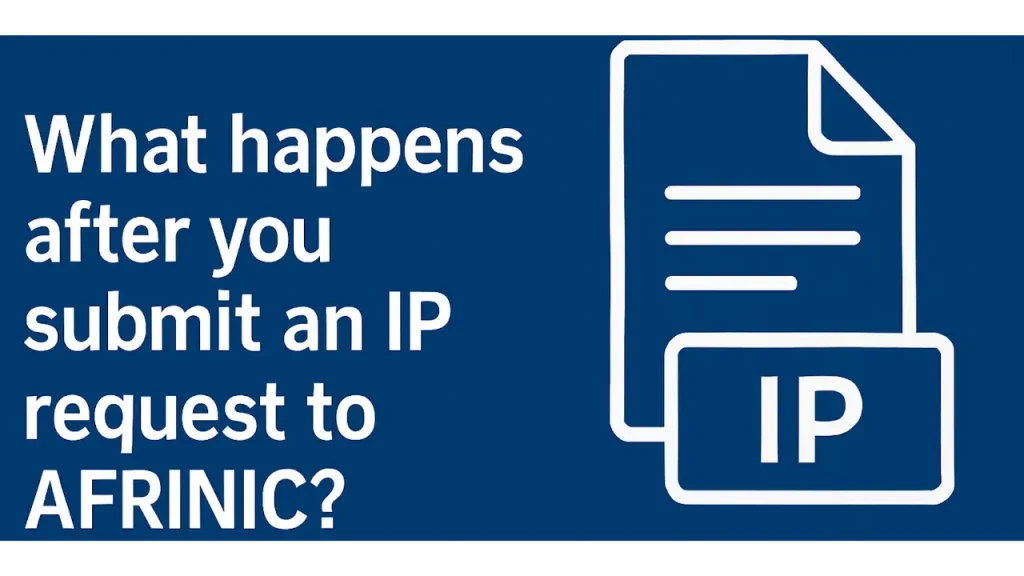- AFRINIC processes IP requests through a structured, policy-based workflow that includes validation, invoicing, and WHOIS registration.
- The process ensures right IP distribution, reduces misuse, and supports Africa’s digital growth and internet infrastructure.
AFRINIC’s IP resource allocation process
When you submit a request for IP resources via My.AFRINIC, it is routed immediately to AFRINIC’s Registration Services team. Staff members review the request to check for completeness, validity, and compliance with allocation policies and eligibility criteria .
If documentation is missing—such as a network plan or proof of legal registration—AFRINIC contacts the applicant. Once everything meets policy standards, Finance issues an invoice based on the requested resources.
After payment and signed Registration Services Agreement (RSA) are submitted—usually by fax or post—the Hostmaster team finalises the IP block allocation and updates the WHOIS database within about 24 hours.
Also Read: Cloud Innovation calls for AFRINIC wind-up
Also Read: What happens when AFRINIC reclaims your IPs?
AFRINIC’s allocation framework
Understanding AFRINIC’s IP allocation process is essential for network operators, ISPs, universities, and governments across Africa that depend on timely address resources. IP addresses are globally limited—IPv4, in particular, remains scarce—making fair distribution critical. AFRINIC’s methodical approach—assessing needs, collecting necessary documents, ensuring payment, and securing signed agreements—ensures legitimacy and compliance.
This safeguards the integrity of global routing and WHOIS data, which underpins trust in internet operations. Compared to other Regional Internet Registries, AFRINIC’s processes highlight the importance of transparent, needs-based allocation systems in maintaining an equitable internet landscape.
For end users and digital policymakers, this procedure matters because it affects network rollout speed and service reliability. Delays or errors in allocation can stall connectivity projects, especially in underserved regions.
Moreover, clear procedures help reduce fraud and misallocation—a recurring issue in internet governance that’s drawn scrutiny in other regions. Ultimately, AFRINIC’s allocation framework plays a pivotal role in supporting digital inclusion and robust internet infrastructure across Africa.

